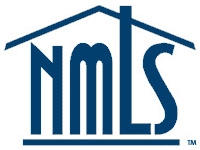A commercial mortgage is a type of loan that is secured by commercial real estate property. It is typically used by businesses and investors to finance the purchase or refinancing of income-producing properties such as office buildings, retail spaces, hotels, or industrial properties.
Here are some key points to understand about commercial mortgages:
- Purpose: Commercial mortgages are used to acquire or refinance commercial properties rather than residential properties. The property serves as collateral for the loan.
- Loan Terms: Commercial mortgages usually have longer loan terms compared to residential mortgages, typically ranging from 5 to 20 years or even longer. The loan term can vary depending on the lender and the specific circumstances.
- Down Payment: Lenders typically require a larger down payment for commercial mortgages compared to residential mortgages. The down payment can range from 20% to 30% or more of the property's value. The exact amount depends on factors such as the borrower's creditworthiness, the property type, and the overall risk associated with the loan.
- Interest Rates: Commercial mortgage interest rates can vary based on factors such as the borrower's creditworthiness, the property's location and condition, and the overall market conditions. Rates can be fixed or variable. Fixed rates remain constant throughout the loan term, while variable rates may fluctuate based on a benchmark interest rate such as the Prime Rate.
- Loan Amount: The loan amount for a commercial mortgage is based on factors such as the property's appraised value, the borrower's financial strength, and the property's income potential. Lenders usually have a maximum loan-to-value (LTV) ratio, which determines the percentage of the property's value that they are willing to lend.
- Repayment: Commercial mortgages typically have an amortization period, which is the time it takes to fully repay the loan. The loan may have a longer term, but the borrower makes regular payments, typically monthly, that include both principal and interest. At the end of the loan term, there may be a balloon payment, which is a large final payment that covers the remaining balance.
- Qualification Criteria: Lenders evaluate several factors when considering a commercial mortgage application. These include the borrower's credit history, financial statements, business plan, property appraisal, and income-generating potential of the property. The borrower's experience and track record in managing commercial properties can also play a role.
- Risks and Considerations: Commercial mortgages come with certain risks. The income from the property may fluctuate, affecting the borrower's ability to make loan payments. Market conditions can also impact property values and rental rates. It's important to carefully assess the financial feasibility and risks associated with the property and the business plan before seeking a commercial mortgage.
- Lender Options: Commercial mortgages are offered by banks, credit unions, specialized commercial mortgage lenders, and other financial institutions. Each lender may have its own criteria, terms, and conditions. Working with a commercial mortgage broker can help borrowers access multiple lenders and find the most suitable loan options.
Commercial mortgages can be complex, and it's important to consult with professionals such as lenders, real estate agents, and lawyers who specialize in commercial real estate to ensure you make informed decisions and navigate the process effectively.














